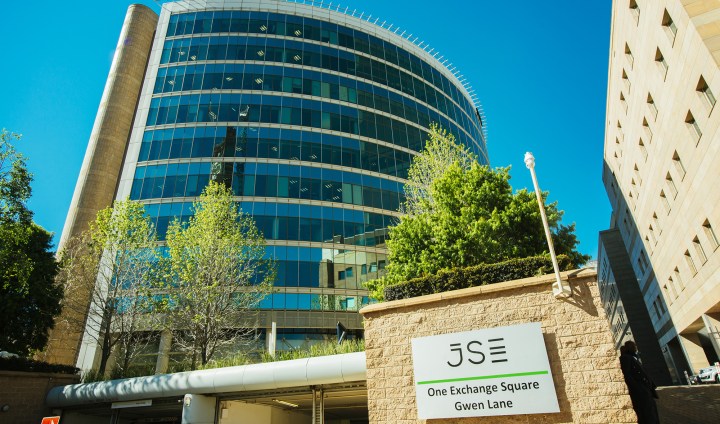AFTER THE BELL
Will the reform of the JSE’s rules work?

Look at almost any country in the world and you can very quickly understand its health by examining its capital markets. I know that sounds a bit like ancient Sumerian to many people, but it’s actually quite simple.
Capital markets are where you trade financial securities, as we all know. If you think about it, financial securities, like stocks and bonds, are really a country expressing hope in its future. The reason is that the more financial securities that are sold, the greater the confidence in this society raising capital to invest, because there is a good chance the investment (and the society) will succeed. Hence, listings = hope = better economy = jobs. The greater the quantum of financial securities sold, the more a society can claim to be in a healthy state.
From the opposite point of view, the greater the decline in the sale of financial securities, the greater the decline in hope and economic confidence. What’s more, because financial securities tend to be long-term in nature, they can act as an early warning sign when things are going wrong.
You can use a historical approach to measure this issue too; the stock markets of Amsterdam and London became world-beaters during the eras of their respective nations’ most profound economic success. One of the hallmarks of the US’s ascendency was the rise of the New York stock market. The post-war success of the Japanese and German stock markets tracked their rise as wealthy nations. And so on.
So, how is South Africa doing on this score? You will no doubt be shocked to hear, just miserably. But there are some ironies here. South Africa has always had exceptionally strong capital markets, so the decline has been somewhat disguised by the strength of their history.
Overall, the exchange has retained its status and, in some ways, it has been enhanced. The JSE is about the 20th-largest exchange in the world, but South Africa is the world’s 40th-largest country in nominal GDP terms. That disjunction is remarkable and almost unheard of around the world.
But underneath the top-line success of the JSE are some worrying undercurrents. The most obvious is that the number of listing companies is declining fast. There has been a net decline in listed companies every year for the past eight years. The JSE now has about 400 listed companies, but that is down from the 760 of 30 years ago.
Last week, the JSE took some steps to try to improve the number of listings, reducing red tape and changing some of the listing rules. The one that got the most attention was the JSE’s decision to back away from its ban on dual-class shares.
Visit Daily Maverick’s home page for more news, analysis and investigations
In principle, dual-class shares are by definition unfair and you want shareholders to all have the same voting rights relative to the shares they hold. But, in practice, corporate founders don’t like to give up control when the company lists because there is a big risk they will just get eaten by larger, pre-existing players. Over time, this tends to become less of a risk, so the JSE put in some safeguards by putting a time limit on how long dual-class shares can exist. Nice idea.
There are other ideas too, some really interesting. There is one proposal, for example, to have just one exchange with different levels of regulation depending on market capitalisation, more as you go up, less as you go down. So, do away with AltX and just build it into the main board. It seems JSE CEO Leila Fourie and her team have done some serious thinking about how to improve the market and encourage listings, and that’s great.
But here is the problem: even before these ideas, the JSE, and SA’s other exchanges, which are making some ground too, were never out of step with global norms. In fact, in some ways, they were ahead.
We have two more problems: First, SA has a dominant group of big financial institutions, which are very geared towards the higher end of the JSE, as explained here. Second, we have a very big problem with business confidence.
One company is an excellent example: Jupiter Mines. You might not have heard of the company, but that is because it is listed in Australia, notwithstanding the fact that it has only one asset, a very big manganese mine in SA called Tshipi. The company is the fourth-largest manganese mine in the world; it has strong cash flows, no debt, and margins are fabulous. On the downside, production growth has been relatively flat and the share price is down, tracking the manganese price. But the company has had a stellar dividend record, paying — I’m not making this up — about 70% of its share price back in dividends over the four years the company has been listed.
And that, I’m sure, has cheered the hearts and pockets of Saki Macozoma and his partners in Ntsimbintle Mining, who own 37% of the mining house and 20% of the holding company Jupiter. But, you do have to ask: why is the company listed in Australia? Partly, the reasons are historical, but I just wonder why our mining minister, Gwede Mantashe, hasn’t phoned his old mate Macozoma and encouraged him to list his bit of the company locally. Would it even occur to Mantashe to do so?
And, by the way, there are more than 20 other new manganese mines which have started operations in SA over the past few decades, and not one of them has been listed here. Mantashe might consider phoning them too. There is a mass of new small collieries too.
The problem stems from the fact that SA’s politicians just don’t see the link between capital markets and economic health. And without that, the JSE’s efforts to modernise the market can only be a partial solution. DM/BM


















Comments - Please login in order to comment.